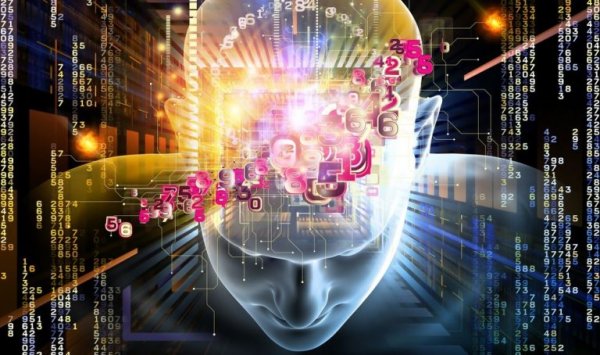The Future is Here: Quantum Computing

Technological breakthroughs give way to an ever-changing and fast-moving world. Today, digital literacy is important and necessary, as it shortens the gap between social and economic developments. In short, we’re all living in a society where technological breakthroughs are the key to progress.
Nowadays, almost everything a computer does is based on a binary language, a series of zeroes and ones. However, these digits can’t combine themselves to store or process information. Because of this, the scientific community has been working on the next big thing: quantum computing. If you’re lucky, you could start living in a quantum age soon enough.
In this article, we analyze what quantum computing is and the advantages this disruptive technology could give to the world. Also, it could possibly end the current digital age.

Basic concepts to help you understand quantum processing
Throughout history, humans have used science to understand how nature works and develop new technologies. At the beginning of the 20th century, studies based on certain physical phenomena paved the way for quantum mechanics, which explains how the microscopic world works.
These studies discovered that the microscopic world works in counterintuitive ways. It’s completely different from the macroscopic world. Some of the things that occur in the microscopic world are:
- First of all, quantum superposition. A principle that describes how a particle can exist in different states at the same time.
- Second of all, quantum entanglement. Two separate particles can be connected in a way where, when one has different interactions, the other knows.
- Thirdly, quantum teleportation. It uses quantum entanglement to send information from one place to another without physical movement.
Thus, quantum technologies would be based on these quantum principles of subatomic nature. The understanding of the microscopic world allows us to design technologies capable of improving people’s lives.

What’s quantum computing?
As we mentioned above, classic computing uses binary language. Every time you interact with a device, you create, modify, or destroy chains of ones and zeroes in a computer, known as bits.
Quantum computing uses a fundamental unit of information called qubit. Unlike bits, qubits can be any of the infinite states between 0 and 1. This phenomenon is known as quantum superposition.
It’s worth noting that this system change won’t make quantum computers faster than current ones. Nevertheless, these algorithms will allow computers to process information differently. For example, a quantum computer could change current cryptography.
The importance of quantum computing
There are already a few technologies that use quantum phenomena, such as laser or MRIs. Mayor breakthroughs in quantum technology will have a game-changing influence in practically every part of your life. For example, quantum computing will put at risk the authentication, exchanging, and secure storage of data, having a very big impact on cybersecurity or blockchain.
However, it could also push AI forward, give more secrecy to military communication, or allow submarines to travel without depending on satellites. The chemical industry could also use this technology to design new materials and chemicals and simulate reactions from physical components. In addition, merchandise distribution could be improved in logistics.
Thus, if quantum computing continues evolving, you’ll be part of the first generation that experiments the huge growth of calculation capacities. For now, labs are investing in it. Governments have a lot of interest in this new technology as well.

In 2017, the United States invested $241 million in quantum computing. China and Europe have lead enterprises of about $1.1 billion. World powers are eager to lead the technology race.
However, quantum computers are still difficult to build, store, and program. Even though there are already a few quantum computer models in the market, none exceed classic computers. In a way, the fight to get that “quantum leverage” is still ongoing.
Technological breakthroughs give way to an ever-changing and fast-moving world. Today, digital literacy is important and necessary, as it shortens the gap between social and economic developments. In short, we’re all living in a society where technological breakthroughs are the key to progress.
Nowadays, almost everything a computer does is based on a binary language, a series of zeroes and ones. However, these digits can’t combine themselves to store or process information. Because of this, the scientific community has been working on the next big thing: quantum computing. If you’re lucky, you could start living in a quantum age soon enough.
In this article, we analyze what quantum computing is and the advantages this disruptive technology could give to the world. Also, it could possibly end the current digital age.

Basic concepts to help you understand quantum processing
Throughout history, humans have used science to understand how nature works and develop new technologies. At the beginning of the 20th century, studies based on certain physical phenomena paved the way for quantum mechanics, which explains how the microscopic world works.
These studies discovered that the microscopic world works in counterintuitive ways. It’s completely different from the macroscopic world. Some of the things that occur in the microscopic world are:
- First of all, quantum superposition. A principle that describes how a particle can exist in different states at the same time.
- Second of all, quantum entanglement. Two separate particles can be connected in a way where, when one has different interactions, the other knows.
- Thirdly, quantum teleportation. It uses quantum entanglement to send information from one place to another without physical movement.
Thus, quantum technologies would be based on these quantum principles of subatomic nature. The understanding of the microscopic world allows us to design technologies capable of improving people’s lives.

What’s quantum computing?
As we mentioned above, classic computing uses binary language. Every time you interact with a device, you create, modify, or destroy chains of ones and zeroes in a computer, known as bits.
Quantum computing uses a fundamental unit of information called qubit. Unlike bits, qubits can be any of the infinite states between 0 and 1. This phenomenon is known as quantum superposition.
It’s worth noting that this system change won’t make quantum computers faster than current ones. Nevertheless, these algorithms will allow computers to process information differently. For example, a quantum computer could change current cryptography.
The importance of quantum computing
There are already a few technologies that use quantum phenomena, such as laser or MRIs. Mayor breakthroughs in quantum technology will have a game-changing influence in practically every part of your life. For example, quantum computing will put at risk the authentication, exchanging, and secure storage of data, having a very big impact on cybersecurity or blockchain.
However, it could also push AI forward, give more secrecy to military communication, or allow submarines to travel without depending on satellites. The chemical industry could also use this technology to design new materials and chemicals and simulate reactions from physical components. In addition, merchandise distribution could be improved in logistics.
Thus, if quantum computing continues evolving, you’ll be part of the first generation that experiments the huge growth of calculation capacities. For now, labs are investing in it. Governments have a lot of interest in this new technology as well.

In 2017, the United States invested $241 million in quantum computing. China and Europe have lead enterprises of about $1.1 billion. World powers are eager to lead the technology race.
However, quantum computers are still difficult to build, store, and program. Even though there are already a few quantum computer models in the market, none exceed classic computers. In a way, the fight to get that “quantum leverage” is still ongoing.
All cited sources were thoroughly reviewed by our team to ensure their quality, reliability, currency, and validity. The bibliography of this article was considered reliable and of academic or scientific accuracy.
- BBVA, https://www.bbva.com/es/para-que-sirve-un-ordenador-cuantico/
- El espectador, https://www.elespectador.com/noticias/ciencia/ibm-lanzo-un-computador-cuantico-pero-que-diablos-es-un-computador-cuantico-articulo-837377
- Xataka, https://www.xataka.com/ordenadores/computacion-cuantica-que-es-de-donde-viene-y-que-ha-conseguido
- Wayback machine, https://web.archive.org/web/20171011234143/http://www.siete24.mx/tendencias/tecnologia/487083/computacion-cuantica-cada-vez-mas-cerca/
This text is provided for informational purposes only and does not replace consultation with a professional. If in doubt, consult your specialist.







